Europe should avoid ‘provocative, unconstructive’ approach to JCPOA revival: Iran envoy
Iran’s permanent representative at the United Nations office in Vienna has urged the European governments to avoid “provocative and unconstructive attitudes” towards the Islamic Republic’s peaceful nuclear program and work towards the resolution of disputes.
Mohsen Naziri Asl made the statement at a session of the Board of Governors of the International Atomic Energy Agency (IAEA) on Wednesday while explaining Iran’s principled stance regarding the 2015 nuclear deal, officially known as the Joint Comprehensive Plan of Action (JCPOA).
Referring to Iran's constructive measures in cooperation with the IAEA since the previous Board of Governors’ meeting in March, Naziri Asl said expectations from Iran were “unreasonable,” and “illogical.”
“Iran's nuclear activities, including [uranium] enrichment at various levels, are completely peaceful and in accordance with the Iranian people’s rights based on the Nuclear Non-Proliferation Treaty (NPT), and are under the supervision and verification of IAEA’s safeguards,” the top diplomat emphasized.
Touching upon the United States’ desire to return to the JCPOA and its subsequent negotiations, Naziri Asl said, “Despite the arduous negotiations that lasted for more than 18 months, mainly due to the lack of American political will and determination, we could not bring the talks to a conclusion.”
The Iranian envoy said the US government has recently stated on multiple occasions that the revival of the JCPOA is “not on the agenda for months,” expressing concern that some parties have turned a blind eye to the “irresponsible attitude,” and are even aligning with it.
“The measure shows that miscalculations and minor political considerations are dominating the revival of an agreement that the international community has invested for years to achieve,” Naziri Asl said.
Iran’s permanent representative at the United Nations office in Vienna called on the European governments to refrain from provocative and unconstructive attitudes, adopt good faith, and continue working in a process that leads to the resolution of “shared concerns.”
“It is a matter of serious concern that despite Iran’s extensive cooperation with the UN nuclear agency, the European Union, especially Germany, Britain and France, continue to resort to outdated tactics and play a dirty game with political motivation to target Iran's ongoing cooperation with the IAEA,” Naziri Asl said.
“The practical cooperation of Europe with the illegal unilateral coercive measures of the United States and the confiscation of Iranian assets is in complete contradiction to the verbal support of the JCPOA,” he added.
Iran proved the peaceful nature of its nuclear program to the world by signing the JCPOA with six world powers. However, Washington’s exit in May 2018 and its subsequent re-imposition of sanctions against Tehran left the future of the deal in limbo.
Negotiations started in the Austrian capital city of Vienna in April 2021, with the intention of removing anti-Iran sanctions and examining the United States’ seriousness in rejoining the accord. The talks, however, have been stalled since August 2022 due to Washington’s insistence on not removing all the sanctions and its failure to offer necessary guarantees that it will not abandon the deal again.
The envoy's remarks come as according to a report last week, the International Atomic Energy Agency (IAEA) decided to close the file on traces of what is claimed to be nuclear material at one of the alleged “undetected” sites in Iran following progress in cooperation between Tehran and the nuclear watchdog.
Iran and the IAEA agreed in March to take steps aimed at facilitating enhanced cooperation and expediting the resolution of outstanding safeguards issues.
The two sides are currently in a dispute triggered by the agency’s Israeli-influenced accusations, which were leveled against Tehran’s peaceful nuclear activities.
Last September, the head of the AEOI, Mohammad Eslami, strongly rejected all accusations, including the UN nuclear watchdog’s allegations, about the existence of undeclared nuclear activities or material in Iran.
In a meeting with IAEA Director General Rafael Grossi in Tehran early in March, Iranian President Ebrahim Raeisi said Tehran expects the IAEA to adopt a “professional and fair” approach to its nuclear energy program and refrain from being affected by certain powers which are pursuing their own specific goals.
Blair distances himself from Trump’s $1bn ‘Board of Peace’ fee
US Justice Department refuses probe into killing of Minneapolis mother
VIDEO | Israel Gaza ceasefire violations
VIDEO | Gaza Solidarity Forum in Damascus calls for boycott of Israel over Gaza genocide
VIDEO | London memorial event highlights Gaza genocide
VIDEO | Press TV's news headlines
VIDEO | Istanbul demonstrators voice support for Iran amid US tensions
VIDEO | Israeli settlers attack Palestinian Bedouin community, injure 13


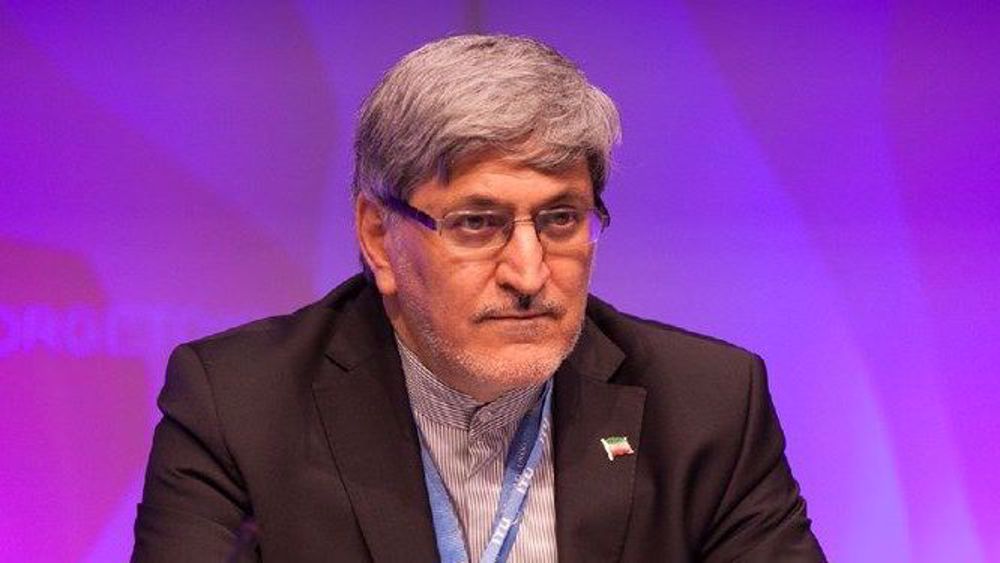
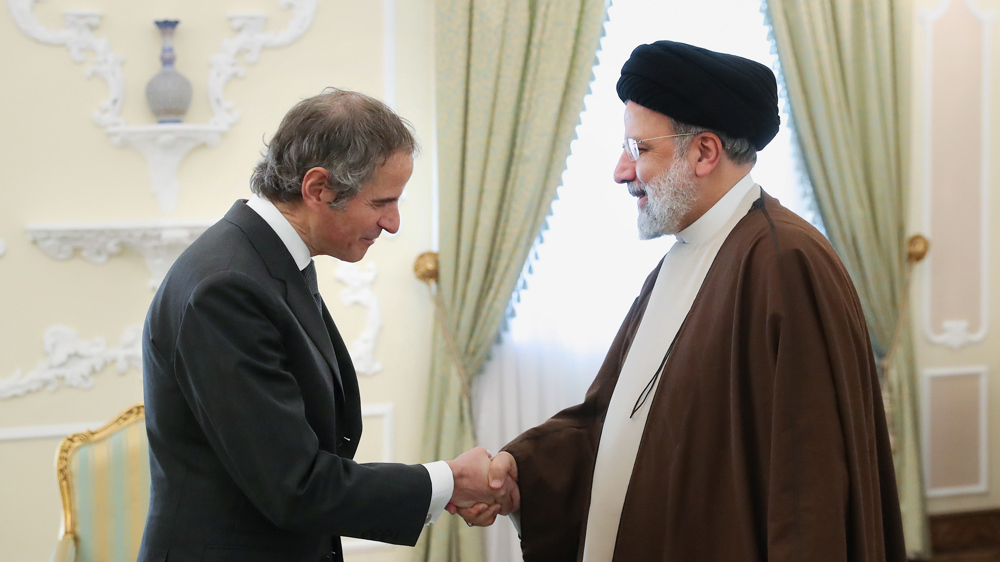
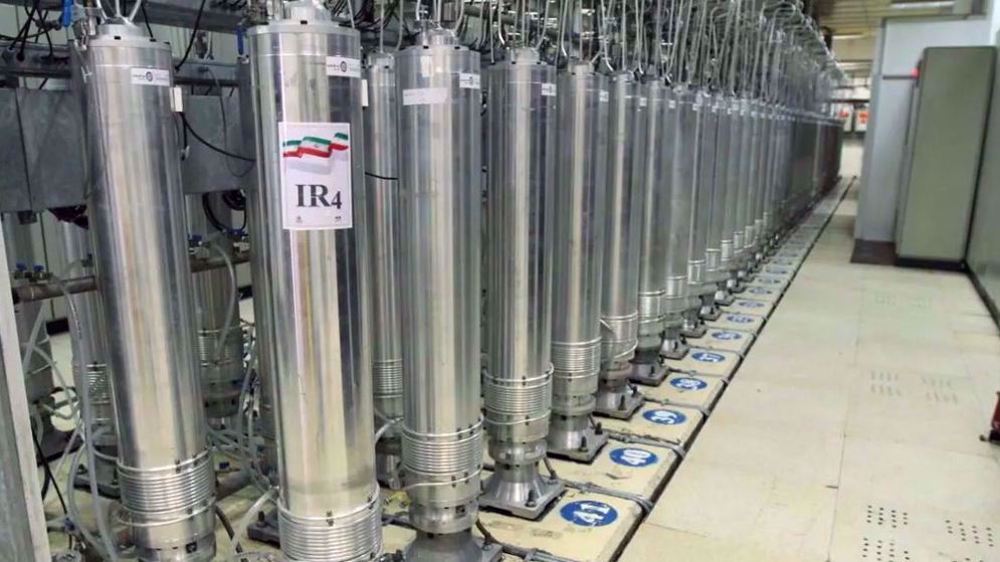

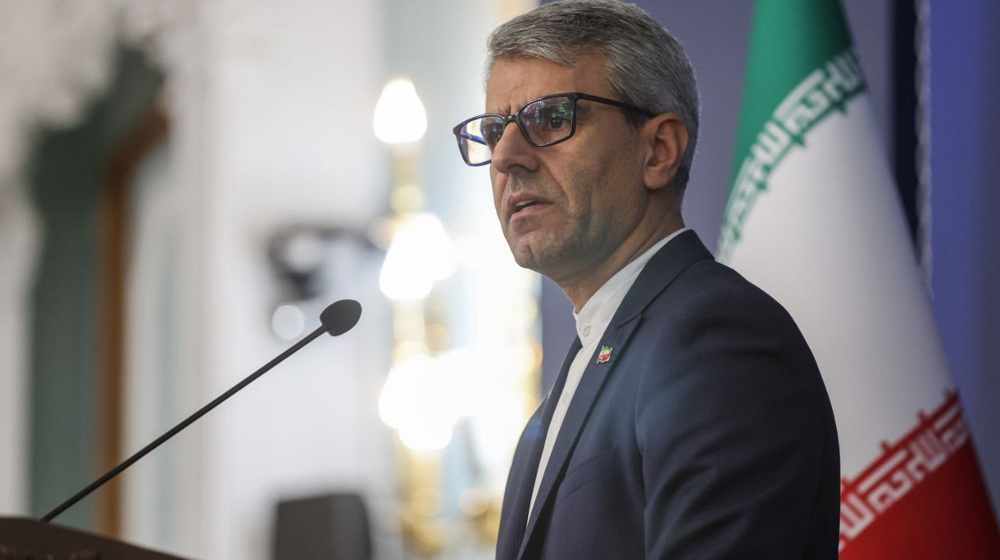
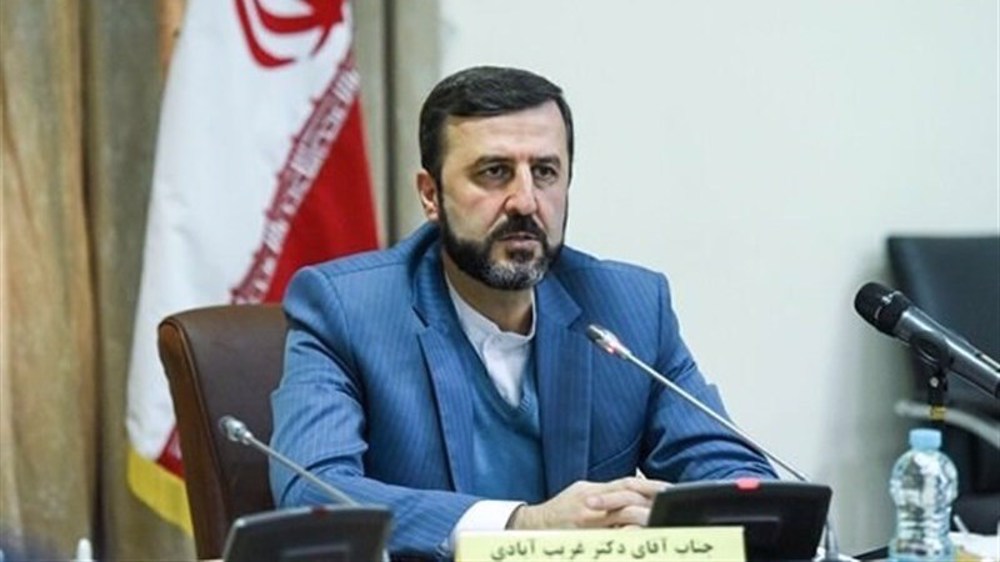



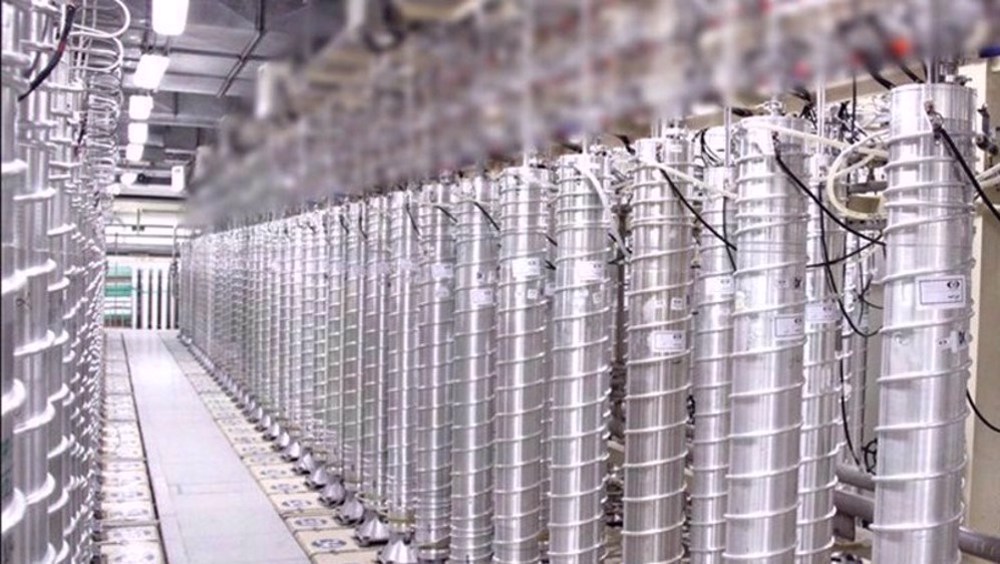
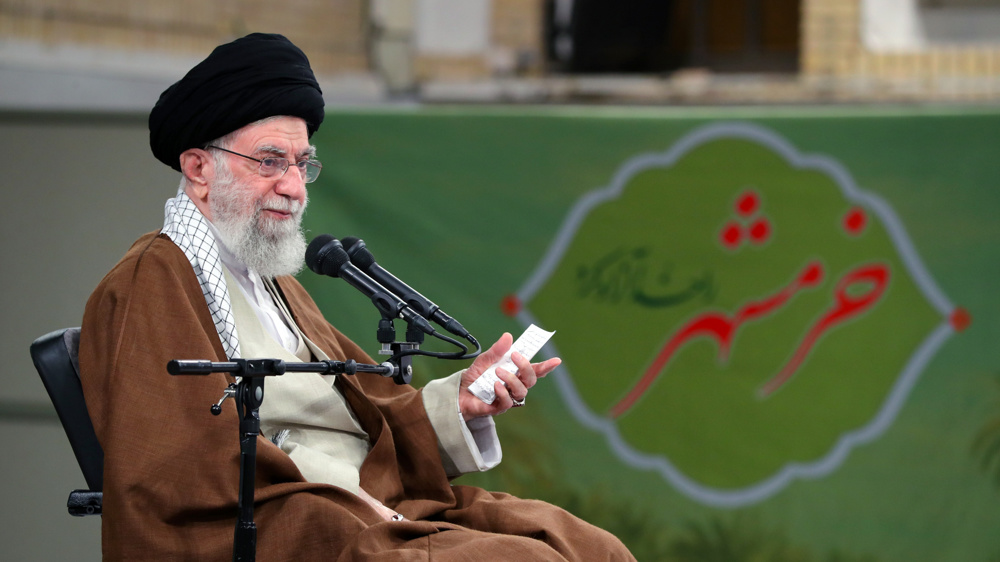
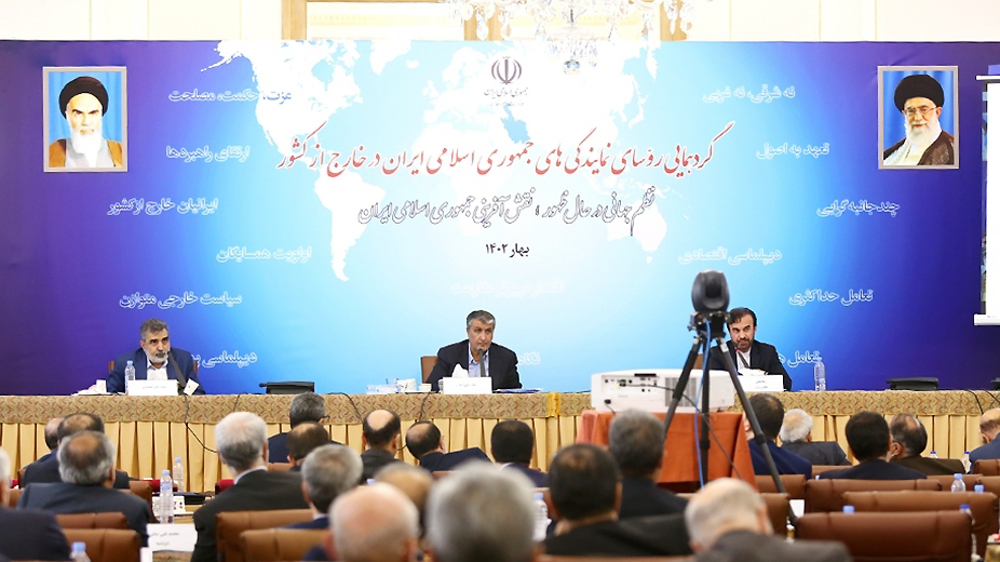
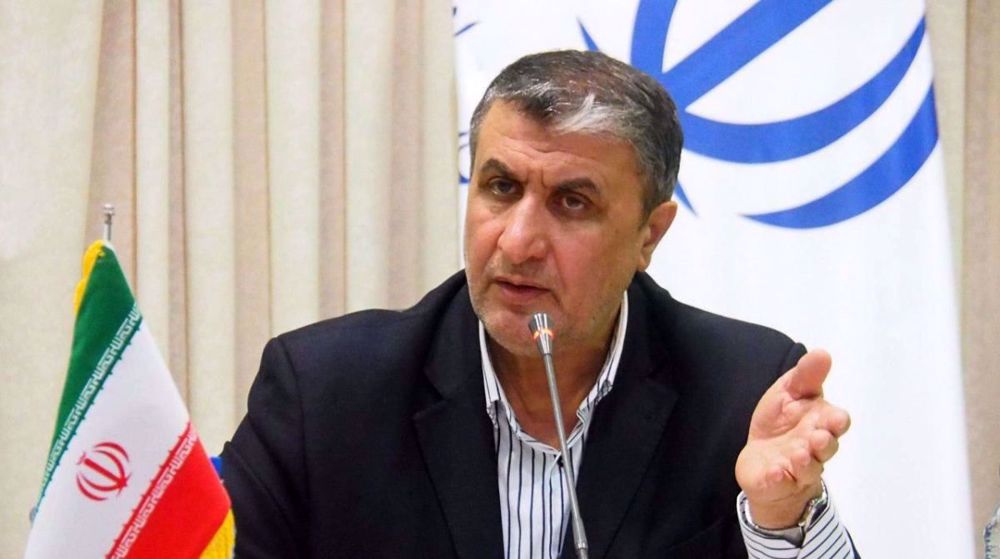

 This makes it easy to access the Press TV website
This makes it easy to access the Press TV website